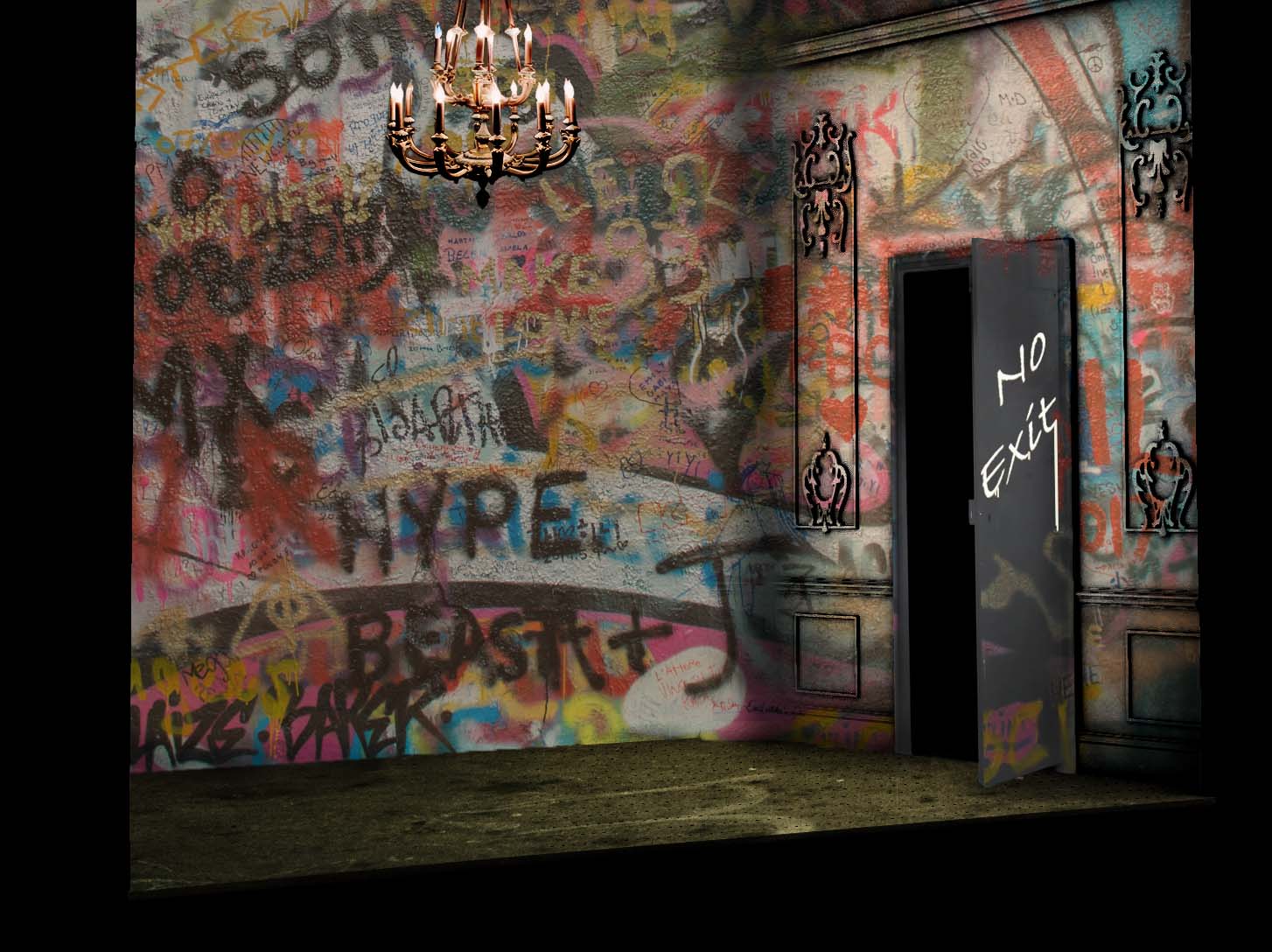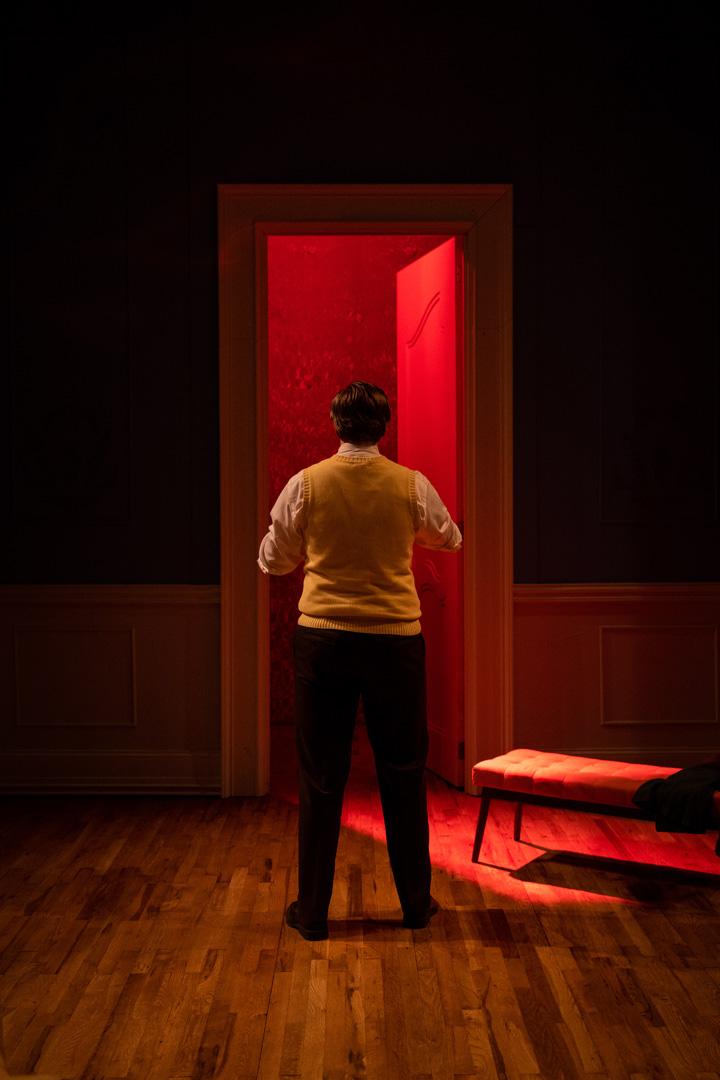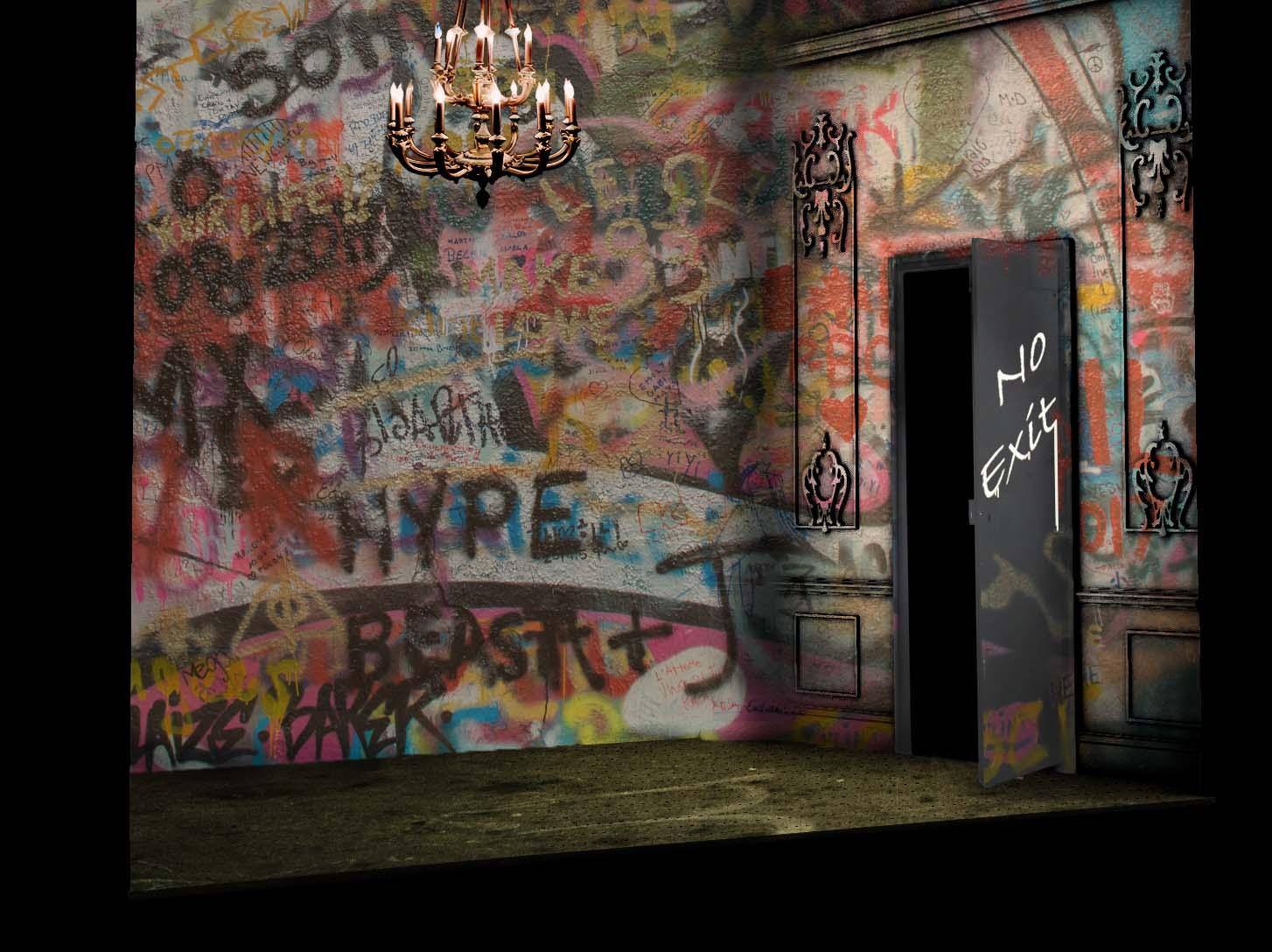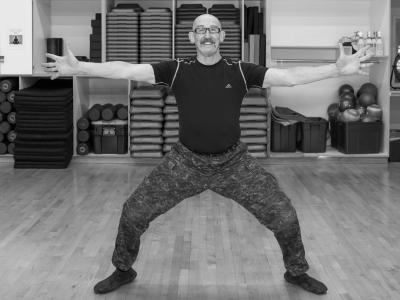No Exit

This event will include unmasked performers. Learn how we protect audiences and performers.
Content Advisory
This play intends to shine light on negative aspects of human behavior in order to provoke and engage the audience. Audiences will find:
- Depictions of Sexual Harassment
- Depictions of Isolation
- Portrayals of gender and sexuality which some may find outmoded or inappropriate
- Discussions of death, suicide, and murder
Time and Location
- 2021, Oct 22 Performing Arts Center 199 - DUG Theater
- 2021, Oct 23 Performing Arts Center 199 - DUG Theater
- 2021, Oct 23 Performing Arts Center 199 - DUG Theater
- 2021, Oct 27 Performing Arts Center 199 - DUG Theater
- 2021, Oct 28 Performing Arts Center 199 - DUG Theater
- 2021, Oct 29 Performing Arts Center 199 - DUG Theater
- 2021, Oct 30 Performing Arts Center 199 - DUG Theater
- 2021, Oct 30 Performing Arts Center 199 - DUG Theater
by Jean Paul Sartre
Adapted from the French by Paul Bowles
"L'enfer, c'est les autres" ("Hell is other people") - Jean Paul Sartre
Three damned souls in the afterlife are escorted by a valet into a plain room, where they're locked in together. They soon realize they've been placed there to make each other miserable for eternity. Extravagant life stories, nefarious confessions, and a love triangle come out as the characters work out what to do in hell.
The play was widely praised as a "phenomenon of theatre" when it premiered in America as a Broadway production at the Biltmore Theatre in 1946. It has been adapted for audio and film productions, opera, and parodies. Show creator Michael Herbert Schur compared Sartre's play to The Good Place.
Talkback, Saturday, Oct. 23
Please join us for a Talkback with the Artists immediately following our Saturday evening performance on October 23rd. The talkback will be moderated by Dr. Patrick Midgley, our new visiting instructor in Theatre History and Theatre Education. We look forward to a lively discussion about the play and our production!
Director's Note
When your past choices don't reflect the person you want to be, how to you convince others you are a good person? How do you convince yourself?
No Exit depicts three damaged individuals who find themselves in hell with total strangers, having to determine what their punishment will be for their actions while alive. The play, written during the occupation of Paris in World War II, was not only an expression of Jean-Paul Sartre’s existentialist philosophy, but also a subversive act of anti-Fascist Resistance; a statement of hope despite the terrifying circumstances in which the characters find themselves. While these three characters make inane attempts at the choices which would free them from their suffering, the play confronts the audience with the responsibility of their own actions and choices--asking us to question who we want to be, what it means to live authentically in the world, and how our actions and choices impact our community.
It is now 18 months since our theaters first closed due to this ongoing pandemic. Like the characters in No Exit, our society is in an indefinite state of waiting. Finding ourselves in isolation, many of us have felt uncertain of who we are without the reflection of others to define us. Bur traits and other people’s prejudices do not define us, only we, and the choices we make, get to do that. This play reminds us that we must be willing to believe in ourselves and be willing to change. We can spend our time vindictively wallowing in despair and guilt, or we can take the opportunity - when the door is opened - to do the one thing that can change our situation…ACT!
Thank you for joining us, we hope you enjoy the show.
Existence precedes essence
Jean Paul Sartre
That deeds possess such an enormous capacity for endurance, superior to every other man-made product, could be a matter of pride if men were able to bear its burden, the burden of irreversibility and unpredictability, from which the action process draws its very strength. That this is impossible, men have always known….[T]his is reason enough to turn away with despair from the realm of human affairs and to hold in contempt the human capacity for freedom, which, by producing the web of human relationships, seems to entangle its producer to such an extent that he appears much more the victim and the sufferer than the author and doer of what he has done.
Hannah Arendt
The Human Condition
Resources to learn more about existentialism
- At the Existentialist Café (2016) by Sarah Bakewell
- Ethics of Ambiguity (1950) by Simone de Beauvoir
- Existentialism is a Humanism (1945) and Being and Nothingness (1943) by Jean-Paul Sartre
What is the worst thing you have ever done in your life? The thing that haunts you as such an antithesis of yourself, you swear that it cannot define you. Do you dwell on it? Do you take actions to correct it? Was it so catastrophic that it changed the course of your life? What can you say to convince people that the person who did that is not you? If you could leave it all behind to be the person you want to, would you, even if it meant everyone you know thinking the worst of you?
For the characters in No Exit, their guilt, however justified or self-manifested, is all consuming. They have done terrible things, and their guilt has sent them to hell. They are stuck in that room for an eternity because of their refusal to take act in congruence with their own ideals and to find themselves to be enough. Their refusal to be self-actualized.
Sartre called this kind of disingenuous moral rationalization ‘bad faith.’ We all have the free will to decide what kind of person we want to be, and to choose how we act in the world. Someone lives in ‘bad faith’ when they don't accept that burden of free will, either by declining to determine who they want to be for themselves, or by using past events and circumstance to rationalize their incongruent actions. This was a radical philosophy of personal accountability to one's virtue and community. Debuting in occupied France in May of 1944, No Exit, and Jean-Paul Sartre's philosophy of Existentialism, was nothing short of anti-fascistic resistance. If we all have the free will to choose both what we value and whether we act according to it, then there is no longer a justification for bad deeds. One cannot say they had ‘no other choice’, or that it is ‘not who they really are.’ At the end of the day all you have left to show for what your essence is are the actions you choose to take. We must constantly interrogate the question of who we want to be, and incessantly peruse that version of ourselves in our deeds. If we do that, then we will have created our own happiness and satisfaction with life. This is a self-actualization, and is completely independent of the placation of others. It rests wholly on each of our own shoulders with the full burden of free will, and the unending uncertainty and risk in every action.
This is not a play about bad people, it is a play about all of us. Every one of us who has ever worried whether we are doing the right thing for the right reasons. Every one of us who knows we did the wrong thing for the wrong reasons and cannot live with that fact. Every single one of us who wants to be someone we are not. Our actions define us, and No Exit reminds us that we can continue to make choices of salvation long after we think all hope is lost.
To me, this is the beauty of our play. It is a reminder to believe in ourselves. It is a reminder to be willing to change. It is a morality play not just about being virtuous to others, but about expanding that care to yourself, and learning to grow. This lesson has helped me over the course of this past year in quarantine while uncertain of who I was without the reflection of others to define me. I hope it can provide some comfort to you as well.
It is now 18 months since our theaters first closed due to this ongoing pandemic. Our society is in an indefinite state of waiting. And right now it seems we aren’t even sure what our ending or return looks like. We can spend our time wallowing at the life stolen from us, or we can listen to Sartre and No Exit, a play concluding in the resounding premise that if you are not happy with your situation you only have one thing to do…ACT!
Thank you for joining us, we hope you enjoy the show.
Elijah Rakha-Sheketoff





Disability Accommodations
For disability accommodations, please contact the department presenting the event. Disability access information is available online at Parking Services, and further resources can be found by contacting Western's Disability Access Center.





